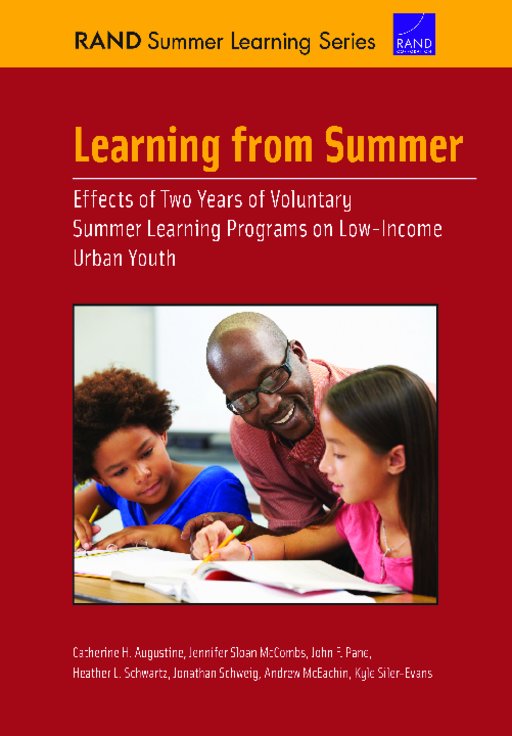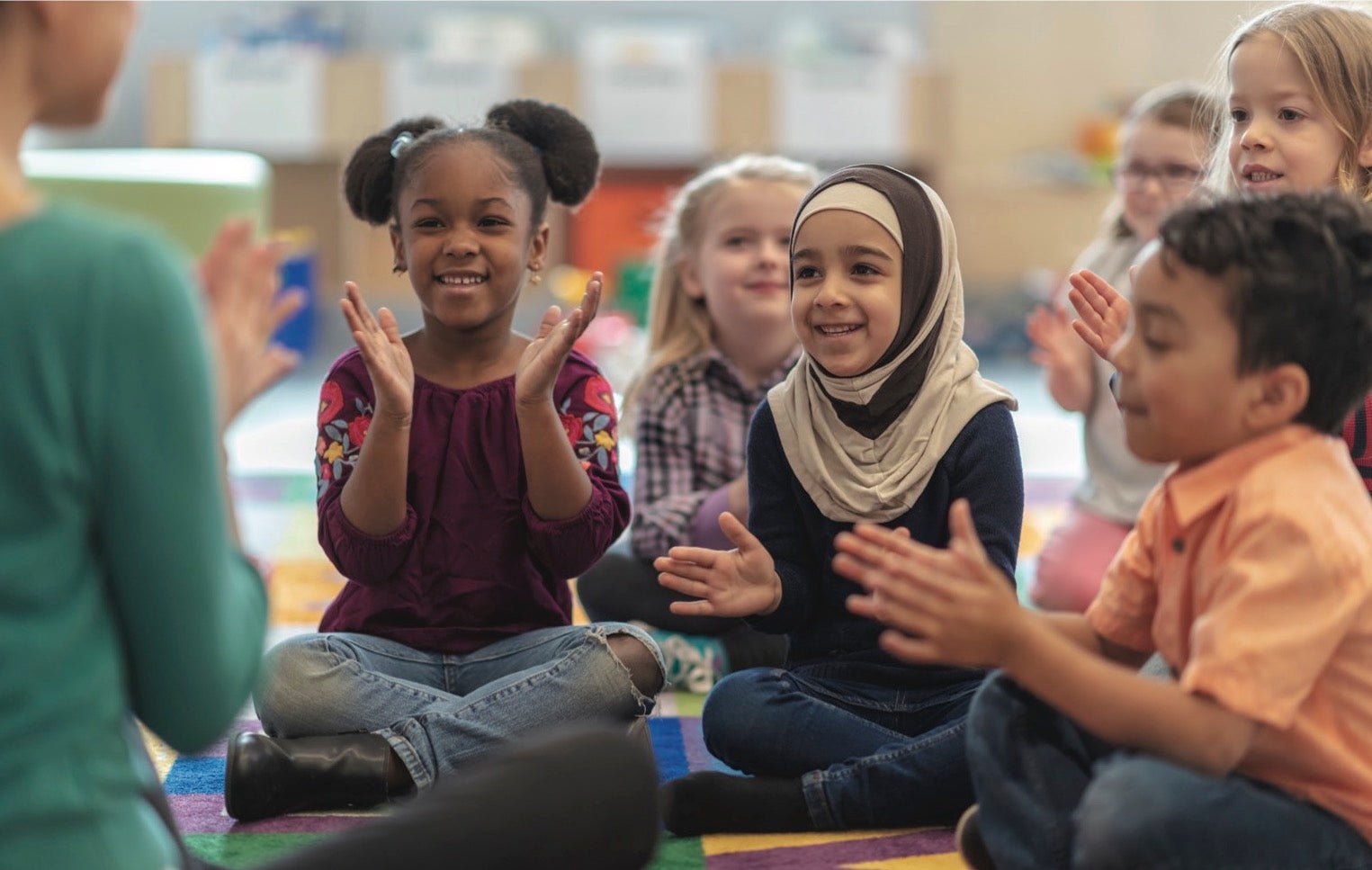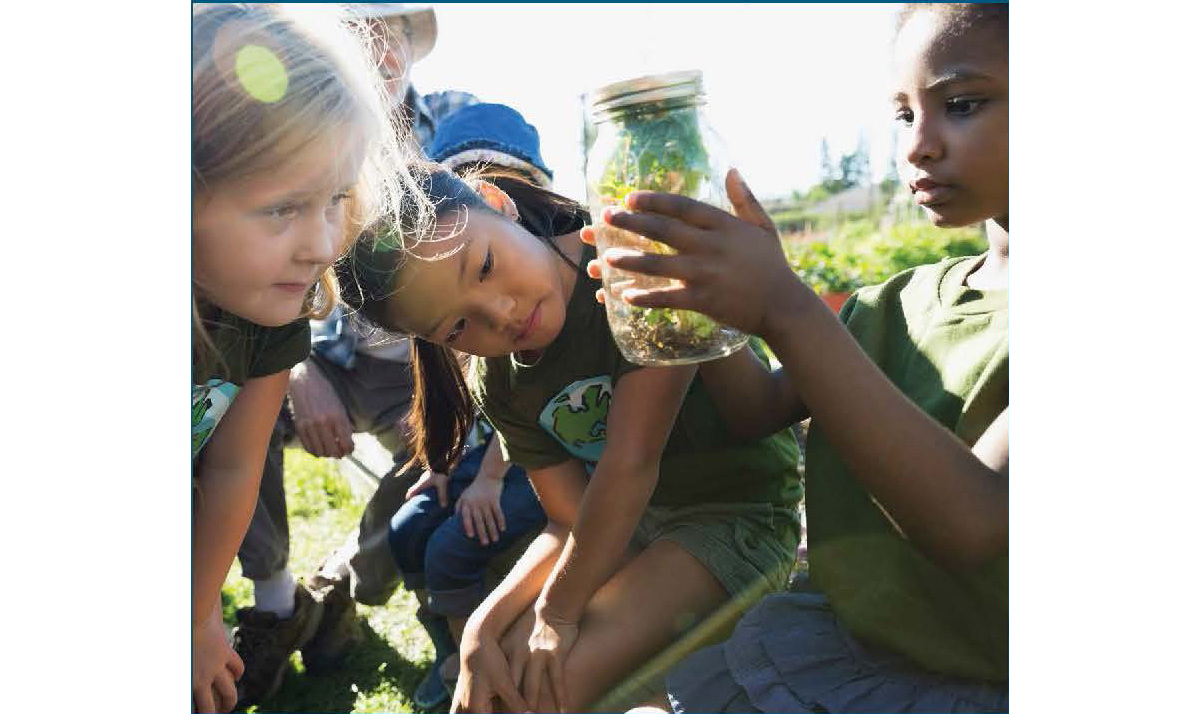- Author(s)
- Catherine H. Augustine, Jennifer Sloan McCombs, John F. Pane, Heather L. Schwartz, Jonathan Schweig, Andrew McEachin, and Kyle Siler-Evans
- Publisher(s)
- RAND Corporation
- DOI Link
- https://doi.org/10.7249/RR1557
Research Approach
The report presents findings on the effects of two consecutive summers of programming in 2013 and 2014 on language arts and mathematics learning. It also evaluates student behavior and social-emotional competence in the fall after each summer program and through spring 2015. Methods included a randomized controlled trial.
Researchers conducted a multiyear study of district-led, voluntary summer programs in five school districts—Boston, Dallas, Duval County, Fla., Pittsburgh, and Rochester, N.Y.—to assess their impact on more than 3,000 students. The ground-breaking study was unique in its scope, length, and analytic rigor.
Randomized Control Design
The study was conducted using several research methods, including a randomized controlled trial involving a cohort of students who were third-graders beginning in spring 2013. Researchers continued to track student outcomes through spring 2017. Those findings appear in a subsequent report.
Due to the randomized controlled trial design, researchers concluded the results provided strong evidence that summer programs boost students’ academic and behavioral outcomes.
Outcome Measures
The study investigated multiple outcome measures. They included academic achievement in language arts and mathematics, social-emotional outcomes, and school-year attendance and suspensions.
Specifically, researchers examined:
- Fall 2013 and fall 2014 academic achievement in language arts and mathematics, measured using a broad, generalized, standardized assessment
- Fall 2013 and fall 2014 social-emotional status, using a validated teacher-report instrument on student competencies
- Spring 2014 and spring 2015 academic achievement in language arts and mathematics, measured by state assessments
- School years 2013–2014 and 2014–2015 course grades in language arts and mathematics
- School-year suspensions in 2013–2014 and 2014–2015
- School-year attendance in 2013–2014 and 2014–2015
The volume and variety of data collected and analyzed provided insights into voluntary summer learning programs targeted to low-income youth. Those include whether students will attend, whether students will benefit academically, and what factors appear most important in achieving good outcomes.
Throughout the study, researchers also gathered extensive data regarding program implementation. That allowed researchers to conduct a rigorous set of correlational analyses. They explored the relationship between implementation and outcomes.








